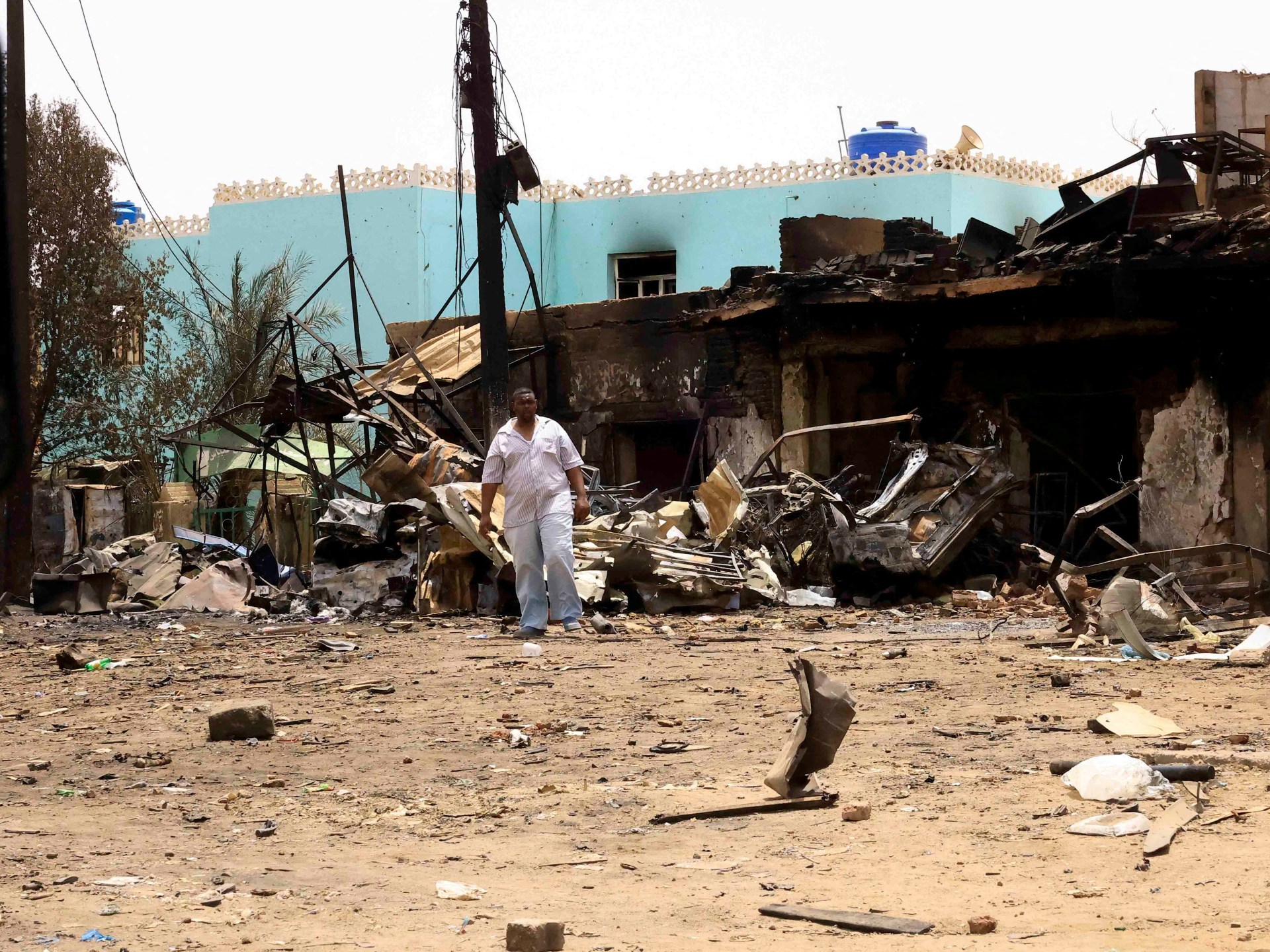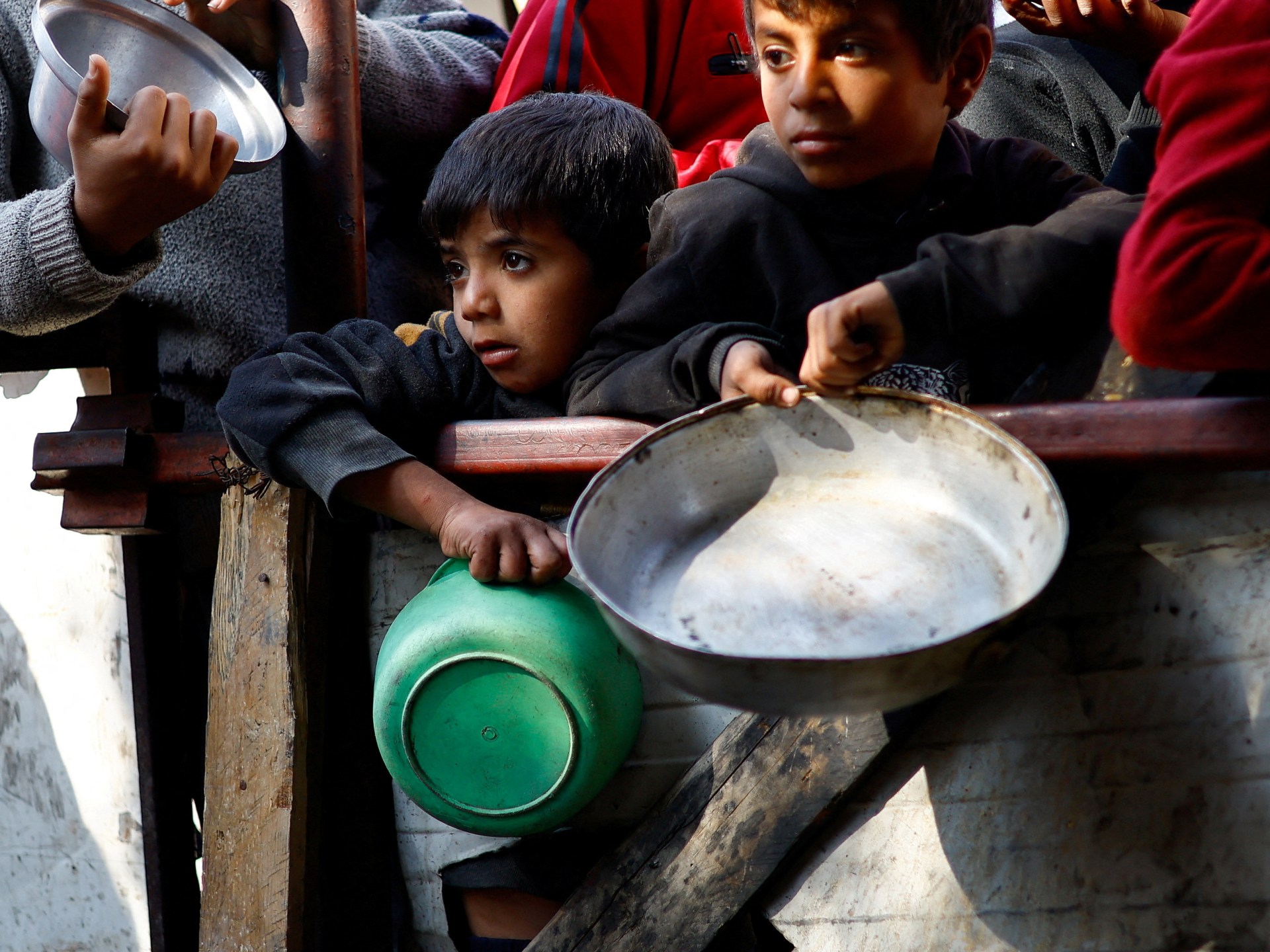Will Ethiopia and Eritrea be dragged into Sudan’s complex war?
In the lead-up to the conflict between the Sudanese army and the paramilitary known as the Rapid Support Forces (RSF), both attempted to improve ties with neighbouring countries – the army with Ethiopia and the RSF with Eritrea.
Those countries could now be drawn into Sudan’s civil war if violence spreads to its borders, analysts told Al Jazeera.
The first sign of warming ties between Ethiopia and Sudan occurred in January. That was when Ethiopian Prime Minister Abiy Ahmed visited Sudan and met army commander Abdel Fattah al-Burhan, the de facto head of state.
The two discussed the Grand Ethiopian Renaissance Dam, which Egypt fears could cut into its Nile water supply, and a border dispute over the fertile region of el-Fashaga.
Two months later, RSF leader Mohamed Hamdan “Hemedti” Dagalo was invited to meet Eritrea’s authoritarian leader, Isais Afwerki, to ostensibly speak about bilateral relations.
What was actually discussed behind closed doors is unclear.
“When you get two totally Machiavellian troublemakers in a room, the intricate combination of mischief can only be imagined,” said Alex de Waal, the executive director of the World Peace Foundation and an expert on the Horn of Africa.
After joining forces to fight in Ethiopia’s civil war against the Tigrayan People’s Liberation Front (TPLF), relations have soured between Abiy and Afwerki. The former inked a peace deal with the TPLF in November, much to the dismay of Afwerki, who sees the organisation as an existential threat, analysts said.
More recently, Abiy has called on Amhara armed groups, which also fought alongside government forces in the Tigray region, to integrate into the national army. The Amhara ethnic group, whose leading forces receive financial and military aid from Eritrea, have reacted by rebelling against the central government.
Now the brewing tensions in the wider Horn of Africa risks intermingling with the fighting in Sudan and creating a wider conflict.
Payback
Shortly after Abiy declared war on Tigray in November 2020, the Sudanese army attacked the disputed border region of el-Fashaga, evicting Ethiopian and mostly Amhara farmers.
For years, a soft border enabled both Sudanese and Ethiopians to farm the land and sell their produce in Ethiopia.
But the Sudanese army, perhaps looking to boost its patriotic credentials by reclaiming what it sees as Sudanese territory, moved into the fertile area when Abiy and his forces were bogged down in Tigray.
With the tables now turned, Amhara armed groups could take advantage of the civil war in Sudan by launching an attack on the Sudanese army in el-Fashaga, according to Hubert Kinkoh, an expert on the Horn of Africa with the Institute for Security Studies, an African think tank.
He added that Amhara groups could simply threaten to do so to strengthen their leverage against the central government.
“[The el-Fashaga] situation could be exploited to force Abiy’s hand to reverse or halt his decision [to integrate Amhara forces],” Kinkoh told Al Jazeera.
Jonas Horner, an independent analyst who has done extensive research on el-Fashaga, told Al Jazeera that the prospect of Amhara forces attacking the region is unlikely but possible.
“It is true that Sudan’s [army] is distracted at the moment, but I do think [Amhara forces] would be running a significant risk for themselves and perhaps the region by making an incursion on Sudanese territory,” he said.
“The Sudanese armed forces, as Sudan’s national army, would be obliged to respond to threats to the country’s territorial integrity,” he added. “Knowing this, Hemedti would be happy to see his foes distracted by any [such] incursions.”
Unfinished business
For now, Eritrea and Ethiopia are maintaining a neutral position towards Sudan because both are uncertain who will win the conflict there, analysts told Al Jazeera.
Ethiopian Foreign Minister Mesganu Arga recently told reporters that his country was deeply concerned about the fighting in Sudan and called for a peaceful resolution.
In a rare nationally televised interview this week, Afwerki also stressed that political affairs in Sudan should be resolved internally and with assistance from the Intergovernmental Authority on Development, a regional bloc better known as IGAD.
“The task of rectifying these costly distortions falls on the Sudanese people and Sudan’s neighbours,” he said.
Awet T Weldmichael, an expert on the Horn of Africa and a professor of history at Queens University Canada, said that he expected Eritrea to get more directly involved in Sudan’s conflict if violence eventually reaches or destabilises Port Sudan.
He noted that Eritrea has longstanding relationships with a number of powerful tribes in eastern Sudan, such as the Beni Amer, Beja and Rashida. In the early 2000s, Eritrea backed those tribes when they waged an armed rebellion against the government of former Sudanese President Omar al-Bashir.
“If active conflict spills over towards eastern Sudan, … you can be fairly certain that the Eritrean president will deploy his troops to protect his allies or bring his influence to bear to ensure that his allies are protected,” Weldmichael told Al Jazeera.
Any participation from Eritrean troops could attract Tigrayan fighters, who are looking for revenge after the civil war in Tigray, analysts said. Survivors from the war have accused Eritrean forces of massacring 300 Tigrayans just before the peace deal between Addis Ababa and Tigray was inked. Eritrea has denied its involvement.
There are already hundreds of Tigrayans who are former United Nations peacekeepers – previously posted in a disputed region between Sudan and South Sudan – now believed to be living in eastern Sudan.
In May 2022, many of those peacekeepers applied for asylum in Sudan, then later returned to Tigray to fight against Ethiopian and Eritrean government forces, according to media reports.
“The [members of the Tigrayan Defence Forces] that remain in eastern Sudan could prospectively be mobilised by [Sudan’s army] to act as a bulwark against any Eritrean involvement, though such action would potentially have ramifications for Ethiopia’s own peace process,” Horner told Al Jazeera.
Weldmichael warned that any mobilisation of Tigrayan forces would trigger a wider war in the Horn of Africa.
“If the chaos in Sudan … enables any actor to link with the TPLF, then that will be something that the Eritrean president will respond to,” he said.




